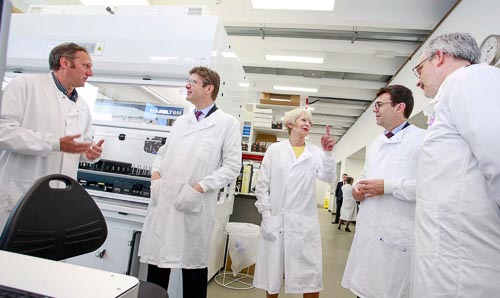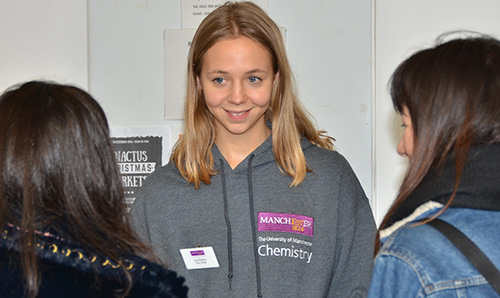
History and leadership
In 2006 the £38M Manchester Institute of Biotechnology at the John Garside Building opened its doors to our researchers and industry partners. The purpose-built building is home a multi- and interdisciplinary community of researchers from backgrounds in physics, chemistry, mathematics, computation, engineering, and biology.
We borrow knowledge and wisdom from the history and heritage of our University and academic Departments and draw our pioneering spirit from a city that has historically been at the front of change. Now, we are leading a new revolution, to advance our understanding of the applications of biotechnology, to develop solutions to today's grand challenges and create a better world for all.
Since our founding, we have grown to be one of the leading institutes for biotechnology in the UK, attracting investment and partnership deals from companies such as AstraZeneca, Waters, and BP, as well as talented students, academics, and professionals.
The building itself offers dedicated and fully specified workspaces for a range of different activities, from bright, open-plan offices for write-ups, through to laboratories with industry standard equipment. At the centre of the building is a large and airy atrium that offers a space for spontaneous interaction and events.
Our leadership
We have built a leadership team that infuses academia and industry in a way that supports our goals and ambitions. Our leadership team work hard to ensure that the MIB's research remains at the forefront of current knowledge in biotechnology and drives forward our vision of a cleaner and more sustainable future.




